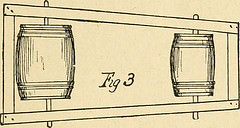The 20th and 21st centuries have faced tremendous changes in the business world following the aspects of civilization, industrialization, globalization as well as liberalization of markets. These phenomenon have led to increased attention on the industrial processes and more so the issue of human resources management. With regards to the concept of globalization and liberalization of markets, there has been increased interaction among the world population thus leading to intensive business activities. This has in turn led to tremendous competition in the business world. In response to the high competition in the business world, human resources management has been the only option to enhance business survival and success. For this reason, business organizations have been forced to adopt the most efficient management strategies that enhance full satisfaction and motivation of employees. As a result of human resources management concern in the business world, the concept of industrial relations has come to play. In this case, industrial relations is a modern phenomenon explaining the relationships between management and employees. From another perspective, industrial relations may be identified as a multidisciplinary field of study pertaining employment relationship. This has been a very vital concept in the modern world, based on the increased competition in the business sector as well as the need for protection of human rights. This paper will provide an explicit discussion and analysis of the concept of industrial relations.
According to Bay, Waring & Cooper, (2009), industrial relations is a broad field of study that explains the whole phenomenon of employee and management relationships within an organizational setting. Arthur (2010) indicates that, the field focuses on the relationships of workers and management and more so groups of workers represented by a union. It is important to note that industrial relations entail the interactions between workers, employers as well as the government. The organizations, institution as well as the associations entailing the different stakeholders in the industrial or corporate sector are also addressed by the concept of industrial relations. Bae et al. (2010) postulated that industrial relations is aimed at instilling harmony and a state of understanding between employees and their employers. The issue of mutual interests between the various parties in the industrial or corporate world is adequately addressed by industrial relations.
Bay, Waring & Cooper, (2009) indicated that industrial relations covers the entire aspect of employment relationships and more so the issue of human resources management. Union or labour management is also addressed in industrial relations. In recent world, the concept of industrial relations has transformed from human resources management and employment relations to the study of labour management, trade unionism and collective bargaining. In this case, industrial relations has distinguished itself from HRM (Bae et al, 2010). In this case, industrial relations deal with employees in trade unions, while HRM entails non-union employment relationships. It should be observed that HRM pertains policies and personnel practices of employers within the organizational settings. As postulated by Arthur (2010), industrial relations is a wide field that addresses all relationships in and out of the workplace, which may include relationships between individual workers or workers and their employers. The relationships between employers are also addressed in industrial relations. It is important to note that, the concepts of conflict resolution as well as welfare management are highly considered in industrial relations.
According to Ben-Ner and Lluis (2010), industrial relations is comprised of three faces that include science building, problem solving and ethics. To begin with, industrial relations as a science building entail the practices of appreciating the issue of employment relationships. In this case, industrial relations are part of social sciences, whereby all the aspects of human resources and industrial sociology is addressed. In this face, the issue of rigorous and high-quality research to develop the human resources and the entire organizational operations is addressed. In the face of problem solving, industrial relations focuses on establishing institutions and policies that help in ensuring better relationships in the workplace. This is a major concern of industrial relations following the increased attention on employee welfare. The day to day conflicts and wrangles in the workplace are brought to an end by adoption of industrial relations (Ben-Ner & Lluis, 2010).
On the other hand, industrial relations also entail the adherence of ethics in the industrial and corporate sector. Arthur (2010) noted that industrial relations comprises of substantial normative principles and values regarding employment and workers relationships. For instance, industrial relations entails establishment of favourable working environment for employees, whereby welfare and rights of the workers is protected and promoted. The concept of ethics has been a crucial face of industrial relations in recent days, whereby it has helped in cracking down the poor management and organizational philosophies with little or no concern about the rights and welfare of employees. According to Bay, Waring & Cooper, (2009), industrial relations has transformed workplace into an ethical environment whereby protection of human rights and welfare is highly regarded (Arthur, 2010). The exploitation of employees like machines in the workplace has been countered by the adoption of ethics. This phenomenon has helped in bettering the working environment, whereby the rights and interests of all groups are taken care of.
The author is associated with College Papers. The author will assist you with Best College Papers.
Find More Industrial Hemp Articles




Leave a Reply